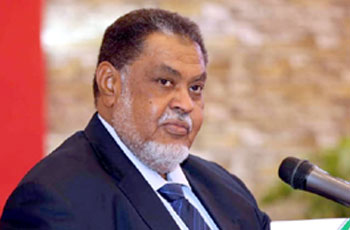Experts Explain How to Revive the Sudanese Economy

Sudan Events – Rehab Abdullah
Economic researcher Fath Al-Rahman Saleh believed that the collapse of the stock markets and its management may require the Sudanese to study it from two angles, first, its impact on Sudan’s ambition to support reconstruction, and second: the development path that adopts free market economics.
Economic researcher Fath Al-Rahman Saleh expected that there may be deep reviews of free economy policies in the reconstruction phase in favor of greater weight for the public and civil sectors without canceling market and private sector initiatives.
He saw during a discussion session at the Sudan Economic Forum on the WhatsApp application, the developmental role of the state leading growth is important until the private sector emerges from its current crisis-ridden situation.
However, Benjamin saw that the private sector is not ready, and is dominated by selfishness, and wondered about what is the solution and what is the dose and recipe and its revival.
At a time when the Minister of Finance and National Economy in the Government of National Accord, Dr. Mohamed Osman Al-Rikabi, saw that the solution lies in relying on public joint-stock companies, pointing out the possibility of the government establishing successful joint-stock companies and then owning their shares to the public by subscribing to them in all areas that the private sector avoids entering or require large capital and knowledge that the private sector does not have, in addition to returning to the “Zadna” experience with strength, which is working on large projects in the agricultural and livestock sector with modern irrigation techniques and then owning them to citizens and expatriates, which are small and medium-sized projects (Zadi 2 project to own axes for growing exported clover and wheat for local consumption and producing and processing dairy products and fattening calves and exporting them as meat and meat products and slaughterhouse waste) Localizing the cultivation of improved bananas by establishing large projects and citizens owning and managing small areas and providing specialized transportation (refrigerators) and refrigerated warehouses, pointing out the possibility of bananas entering as a basic commodity for exports, expecting its exports to achieve about 10 to 15 billion dollars per year, from an area not exceeding 300 thousand acres in the south of the island, Singa and Sennar And Setit, Upper Atbara River, River Nile ,Khartoum and Northern, other than mango and citrus export projects, all of which had ready studies and funding available through financial guarantees.
Al-Rikabi said that this is the way to revive the economy, fight poverty, increase exports and expand private sector participation.
Banking expert Dr. Omar Mahjoub warned of a global financial crisis that would prevent foreign aid from reaching Sudan after the war, saying, “If, God forbid, a global financial crisis occurs, reconstruction plans related to the assistance of friends and international organizations will be in danger.”



